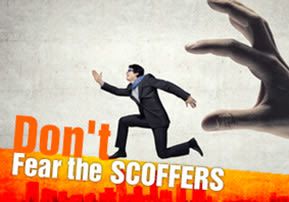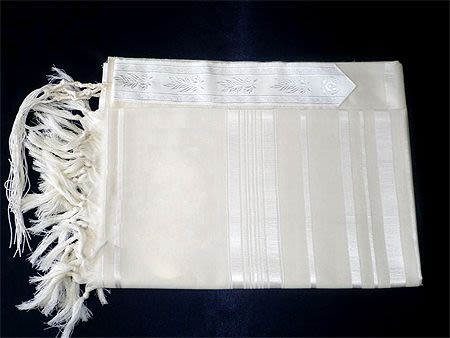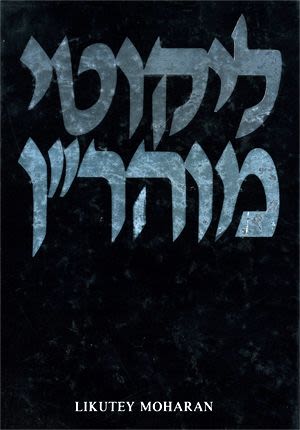
Vayera: Don’t Fear the Scoffers
Why only now, after Abraham agreed to sacrifice his son Isaac on the altar, is it apparent that he fears Hashem? Hasn't he proved that already?

"Because now I knew that you are a man who fears G-d."(Genesis 22:12).
After nine grueling tests of faith, only now Hashem testifies that He "knew" that Abraham is a G-d fearing individual. Why only now, after Abraham agreed to sacrifice his son Isaac on the altar in what we refer to as the Akeda? That seems rather odd, especially since Abraham already had risked his life repeatedly in previous tests, beginning from the ordeal of Nimrod throwing him into a fiery furnace. Also, shouldn't Hashem have said, "…now I know", all in present tense? Why did He say, "now I knew"?
In answering the above questions, we'll learn what it means to be a G-d fearing individual.
Rabbi Nachman of Breslev of saintly and blessed memory teaches[1] that if a person lacks what he terms "brazenness of holiness", he won't be able to stand bravely against those who scoff at his service of Hashem. As a result, the scoffers will most surely weaken – if not totally undermine – his praying and Torah learning. Resultantly, whoever lacks brazenness of holiness surely lacks a portion in Torah; and, if he lacks Torah, he  lacks wisdom. The cycle continues downward, for if he lacks wisdom, he lacks the fear of Hashem, for King David said, "The beginning of wisdom is the fear of Hashem"[2].
lacks wisdom. The cycle continues downward, for if he lacks wisdom, he lacks the fear of Hashem, for King David said, "The beginning of wisdom is the fear of Hashem"[2].
In light of the above, the fear of Hashem depends first of all on one's courage in the service of Hashem. We can now understand why the holy Rama[3] wrote in the very beginning of the Shuchan Aruch[4] that a person shouldn't be ashamed to serve Hashem because of the scoffers and their derision.[5] The quality of holy brazenness, or "holy chutzpa" as Rabbi Shlomo Carlebach ob"m used to say, is the gate to true fear of Hashem. A person who fears others won't be able to withstand ridicule and scoffing, for he or she is afraid what others say about them. They never succeed in serving Hashem. These are the women that would love to cover their hair, but they're afraid of the ladies that would make fun of them and call them all sorts of names. There are men who would love to pray earnestly but they're afraid that they won't be "one of the guys", the magpies that chatter constantly in synagogue and ridicule those who don't. By the way, there is one good thing about the scoffers: they are a sign that a person is entering the gates of holiness, for the scoffers are one the obstacles that stand in the way of holiness. If a person wants to go to a ballgame, bar or to the movies, he or she won't encounter scoffers…
One of the biggest tests of the Akeda was that Abraham had to deal with scoffers. "Look at you, Abraham, the high-brow preacher who spoke so much against human sacrifices. All your fancy rhetoric about peace in the home is rubbish, too! Your wife waited ninety years to be a mother, and now you're going to slaughter her only child? What type of sadistic voodoo is this? And you tell us about a merciful G-d? Come on, Abraham! Wake up and see how utterly absurd and ridiculous yor beliefs are!" Most people would crack at such questions, comments and ridicule. They would not only fail the test of the Akeda, but they'd quit serving Hashem altogether. Not Abraham! He turns a deaf ear to the scoffers, the philosophers and the agnostics. Courageously, he goes forward to perform Hashem's commandments. He puts brains and logic aside and relies on emuna. That's why he's the father of the Jewish People.
Abraham's courage, his "holy chutzpa" in the face of the scoffers, is the result of his unshakable emuna. As my beloved teacher Rabbi Shalom Arush shlit'a always says, "He who fears One fears no one." Since Abraham has true fear of Hashem, he has no fear of the scoffers.
As such, our original questions are answered: in this, the Akeda – Abraham's tenth and final test of faith – we see that he overcame the scoffers to perform Hashem's will. This is the greatest indication of his fear of Hashem. Likewise, Hashem says "now", after the Akeda, "I knew that you are a man who fears G-d." Hashem is omniscient: He knew that Abraham is G-d fearing, but "now", after the Akeda, this fact is apparent for the whole world to see. May the holy merit of the Akeda and of our forefathers intercede in our behalf, amen!










11/03/2014
You have no idea how much I needed to hear this. I've been having a huge problem with scoffers and have been wondering what Hashem is trying to tell me. Thank you ever so much.
11/03/2014
I've been having a huge problem with scoffers and have been wondering what Hashem is trying to tell me. Thank you ever so much.